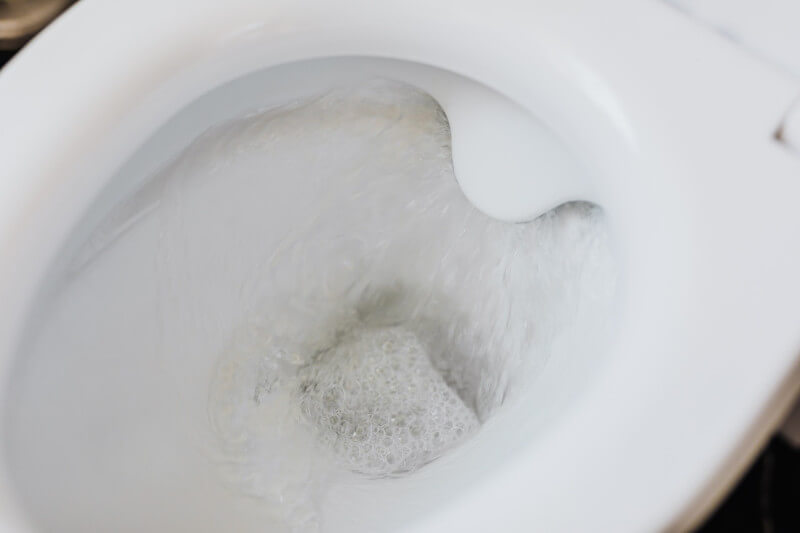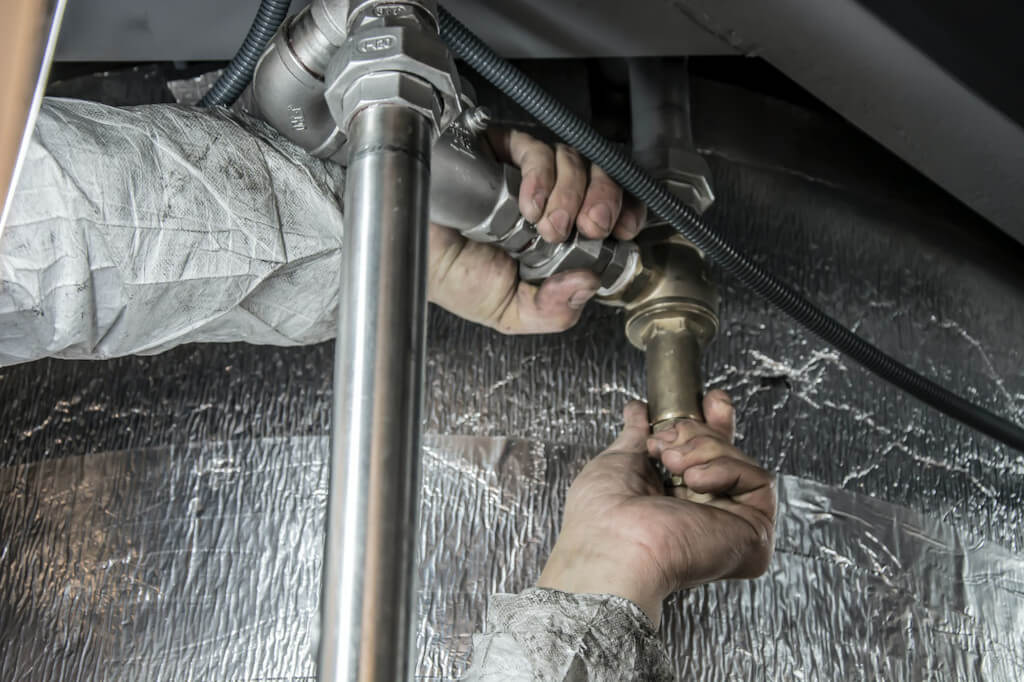If it’s not necessary, no one wants to get in touch with a plumber. If they wait until they need to call a plumber, however, the problem will have already reached a critical stage, and the cost of repairs may be prohibitive. Let’s take a look at some of the ways you can avoid making those costly repairs.
By performing specific maintenance tasks and making a few straightforward repairs, you can help keep everything in your household in running condition and make sure that, if a plumber is required, the situation won’t be an absolute emergency.
Wash Your Garbage Disposal/Garburator
To avoid clogs in the sewer line and expensive repairs, a good number of apartments and condos in high-rise buildings in Cape Town are equipped with garbage disposals. Not only will it make life easier for you and your family if you take the time to ensure that your garbage disposal is clean, well-maintained, and functioning properly, but it will also help you avoid costly and unneeded repairs.
Garburators can be easily maintained by feeding them ice cubes and cold water as part of a routine cleaning routine. This helps to keep the razors sharp and cleans the device. Naturally, you should begin by looking at the user manual right away. When grinding ice, adding lemon peel to the garbage disposal can help produce a pleasant aroma from the appliance.
It is crucial to ensure that every member of the household is aware of what can and cannot be placed at their disposal. False news or a lack of attention paid to what is being thrown in can frequently lead to blockages. The following items should not be placed inside the unit:
- Grounds for Coffee
- Grease or Fat
If You Notice That a Toilet is Clogged Right Away, Clear It Out and Teach Your Family Members How to Do the Same

A “suddenly and inexplicably” blocked-up toilet is typically nothing more than a minor inconvenience. In the vast majority of instances, somebody has improperly deposited something into it when they shouldn’t have. In a manner very similar to that of a waste disposal unit, it is merely not meant for many things to eventually wind up in the bowl of a toilet; however, you would be surprised at what we find. The following items are some of the most common causes of clogged toilets:
- Towels for cleaning up
- Sanitary Items
- An excessive amount of toilet paper
If you do run into an obstruction, you should take care of it as quickly as you possibly can. Do not keep using the toilet with the expectation that the issue will go away because this could result in a messy overflow that you will have to deal with. Determine the nature of the issue first. If the problem persists, try pouring two or three liters of water directly into the bowl to see if that helps. If this isn’t the case, and the toilet is capable of flushing, the clog is most likely located between the bowl and the pipelines.
You need a plunger that has an extension flange on the bell-shaped rubber end of the plunger because these types of plunger are designed to fit toilets more securely. Apply a minimal degree of pressure while positioning the plunger so that the bell-shaped end is covering the trap in the toilet. This will prevent any water from being sprayed everywhere while removing all of the air from the plunger.
After that, begin to apply a greater amount of pressure and plunge in and out. This should cause water to be forced back and forth, which might release the blockage. This will clear the majority of the obstructions, but the more tenacious ones may require the use of an auger or the expertise of a plumber.
If You Want to Avoid Having Poor Water Pressure, Clean Your Showerhead
This is a breeze and won’t take long at all. Because of the lack of water pressure, some property owners seek the assistance of plumbers. When compared to the pressure of the water that comes out of the taps, the showerhead barely generates a trickle of water. The problem is typically remedied by performing some basic cleaning and upkeep. To clean the showerhead, you need only remove it and soak it in vinegar for the night. In addition to that, you can use a pin to clean the water outlets.
To thwart mildew from growing in the bathroom and causing the showerheads to become clogged, precautionary measures should be taken. When you’re in the middle of taking a shower, make sure the exhaust fan is on and/or that you have a window cracked. To hasten the drying process, ensure that your bath and shower stall are exempt from mold growth, and avoid leaving moist towels hanging around for an excessive amount of time.
A basic maintenance tip that applies to the entire home, in addition to the bathroom, is to ensure that your household has adequate ventilation (don’t forget the basement) and to prevent mold and mildew. Another thing that encourages the growth of mold in the laundry is damp clothing and towels. A dehumidifier is a great investment to consider making if your home is prone to developing mold because it will help dry out the walls and the air.
Ensure That Your Supply of Hot Water is Well Maintained by Following These Steps
A common complaint voiced by homeowners in Cape Town is that their homes’ water heaters don’t produce hot water at an adequate temperature. Fixes are typically straightforward, and a few basic preventative maintenance procedures might have been enough to head off the problem in the first place.
A thermostat that must be adjusted is a frequent issue that has a straightforward solution. They are accidentally knocked into from time to time. You only need to keep in mind that you should inspect yours regularly. To save energy, some individuals may turn the thermostat down during the summer months but forget to turn it back up during the winter.
A problem can arise when using tank-based systems due to the accumulation of sediment in the tank. Because the water in Cape Town is hard and contains a large number of minerals, it is recommended that a water softener be utilized and the tank be drained and cleaned at regular intervals.
Aged water heaters are more likely to have issues such as a cracked dip tube, a leak, a cracked heating element, or a broken gas valve. The specific issues that can arise with your water-heating system vary based on its age and type. These issues require immediate attention from a qualified plumbing professional. Visit this page to immediately get in touch with a trusted local plumber.
Your water heating system should undergo routine checks and maintenance, including flushing, to protect it from potential damage. Homeowners in Cape Town depend on a consistent supply of hot water throughout the year, and because repair work can be a significant expense, it is in their best interest to have their systems serviced on an annual basis.
Securing the Pipelines in Your Household to Stop the Clanking Noises They Cause
Since it can be quite unsettling to hear these thwacking sounds coming from metal pipework, homeowners frequently seek the assistance of plumbers when they experience knocking water pipes in their homes. You can take a few precautionary steps to prevent this issue from occurring, and if it does occur, the problem can be quickly troubleshot and fixed.
When you turn off the hot or cold water, or when you run either of those types of water, you might hear a banging noise. Because of growth and contraction, it happens most frequently with hot water pipes made of copper. If the issue is caused by loose pipelines in the wall and the pipelines are viewable, you can help secure the pipes by using plumbing grips or clips approximately every 30cm of the pipe. This will ensure that the problem does not reoccur. If they are hidden behind drywall, you might have no choice but to get used to the noise.
The term “water hammer” or “hydraulic shock” is used to refer to the sound that is produced when a device in the home, such as a dishwasher or washing machine, is turned off. This is due to a valve suddenly closing off its flow of water. Don’t, however, freak out just yet because these sounds don’t indicate that your plumbing system is going to fail. Just before the outlet, there should be an area that is loaded with gas or air to soak up the pressure that has built up. This will help stop water hammer sounds from occurring.

